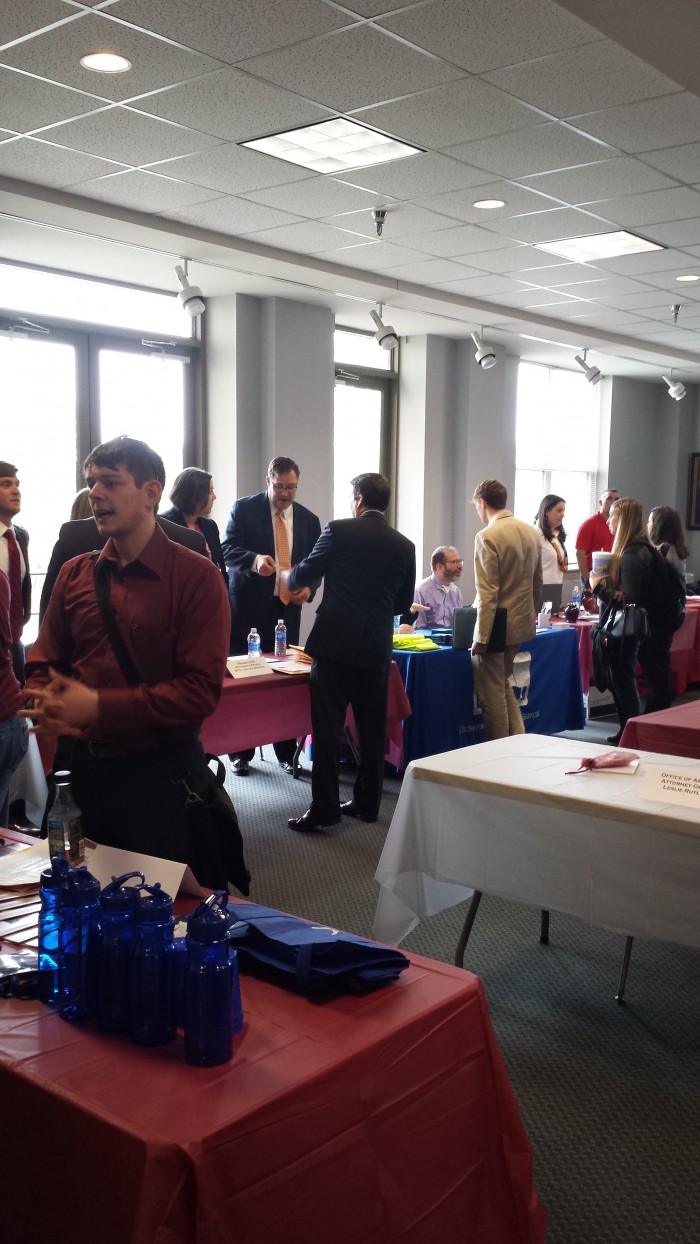 Your resume has made it through the screening process. The firm, company, or agency is looking for someone with your credentials. The objective part of the process is finished. Now the prospective employer wants to meet you in person. From this point forward, all decisions about you are going to be purely subjective. The first impression you make is of the utmost importance. The interviewer will notice immediately if you are dressed professionally, speak articulately, and seem confident, knowledgeable, alert and motivated. It is perfectly normal to be nervous before such an experience, but if you come prepared, you will soon feel at ease and be capable of handling the interview like a two-way conversation.
Your resume has made it through the screening process. The firm, company, or agency is looking for someone with your credentials. The objective part of the process is finished. Now the prospective employer wants to meet you in person. From this point forward, all decisions about you are going to be purely subjective. The first impression you make is of the utmost importance. The interviewer will notice immediately if you are dressed professionally, speak articulately, and seem confident, knowledgeable, alert and motivated. It is perfectly normal to be nervous before such an experience, but if you come prepared, you will soon feel at ease and be capable of handling the interview like a two-way conversation.
Preparing for the interview
Research the firm as completely as possible. Find out about the person who will interview you. Look up the firm online. Get information about the firm from current or past employees (often classmates) you may know. In addition to information about the firm, look for information that tells you the kind of law its lawyers practice and their backgrounds. Is your interviewer a UALR William H. Bowen School of Law graduate? Are any of the other attorneys UALR graduates? Where did they earn their undergraduate degrees?
Consider and prepare answers to potential questions. Familiarize yourself with potential questions that may be asked of you, and plan your answers. Prepare questions you want to ask about the firm and possibly the interviewer. Sample sets of questions of both kinds are included at the end of this section. The most important question you should be prepared to answer is “Why should we hire you?” Be positive, not defensive. Stress your strong points. Do not point out your weaknesses. Answer with a description of the skills you can bring to the firm that will meet its needs.
Practice interviewing with friends, attorneys you know, or the assistant dean. Try to make these practice interviews as realistic as possible.
The interview
Dress appropriately. The legal profession is conservative. While many interviewers in this market indicate the black, gray or navy pant or skirt suit is not required, this is still appropriate interview attire. Attire for men and women should be simple in nature and conservative in style, and clean, neat and tidy in appearance. Shoes shined with matching socks. Collars stiffened. Women should avoid bright colors, low-cut necklines, short skirts and tight clothing. Jewelry should be minimal. Body piercings SHOULD NOT be highlighted. Tattoos should be covered. In Arkansas at least, hose have become optional, but if worn should be skin-toned. Think about interview attire and your professional wardrobe when making purchases from here on out.
Be prompt. Arrive about ten minutes before the scheduled interview. Smile when you meet the interviewer and shake hands firmly. Remember: The first few minutes are the most important ones. Keep in mind that the interview situation is often stressful for the interviewer as well as the candidate.
Be an active participant. Help to keep a conversation going rather than a question and answer period. Answer questions with descriptive statements rather than monosyllables.
Expect to be asked questions such as “Why did you go to the UALR William H. Bowen School of Law?” or “What makes you think you will make a good attorney?” More experienced attorneys will sometimes ask behavioral questions like “Tell me about a time when you had to deal with an individual you did not like or who did not like you.” It is important to remain calm and poised while answering these questions in a positive, non-defensive manner. The interviewer may want to see how well you deal with pressure and think on your feet.
Bring a writing sample, reference sheet, and extra resumes. Prepare questions you would like to ask.
Ask for the interviewer’s business card. Eye contact is important. Look at your interviewer. Show a genuine interest in the firm. In your initial interview, do not ask questions about salary, vacations, or how quickly associates become partners.
After the interview
After leaving the interview, write down as much information as you can remember, including the names of individuals with whom you spoke. Use this information to compose a thank you letter to the interviewer or to the person who arranged the interviews, if there were several interviewers. Express gratitude for the time that the attorney spent with you, and indicate that you found the experience both enlightening and enjoyable.
If you receive an offer from the firm or company, you may take time to think about it. It is unusual that a candidate accepts on the spot. OCI employers have been asked to allow up to two weeks for your response. However, be sensitive to the employer’s needs as well. You may respond immediately, but make sure that you ask all the questions that may occur to you before you accept an offer. If you never had an opportunity to discuss salary, this is the appropriate time. Career Services has information on negotiating compensation that may be helpful.